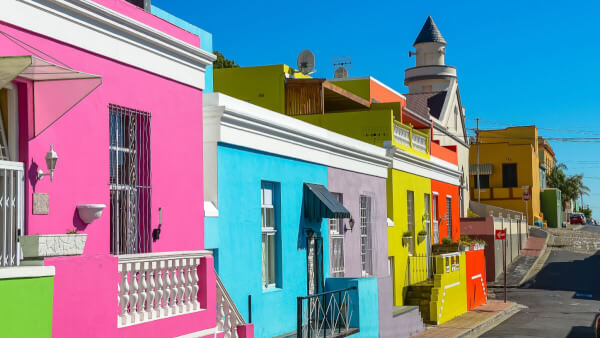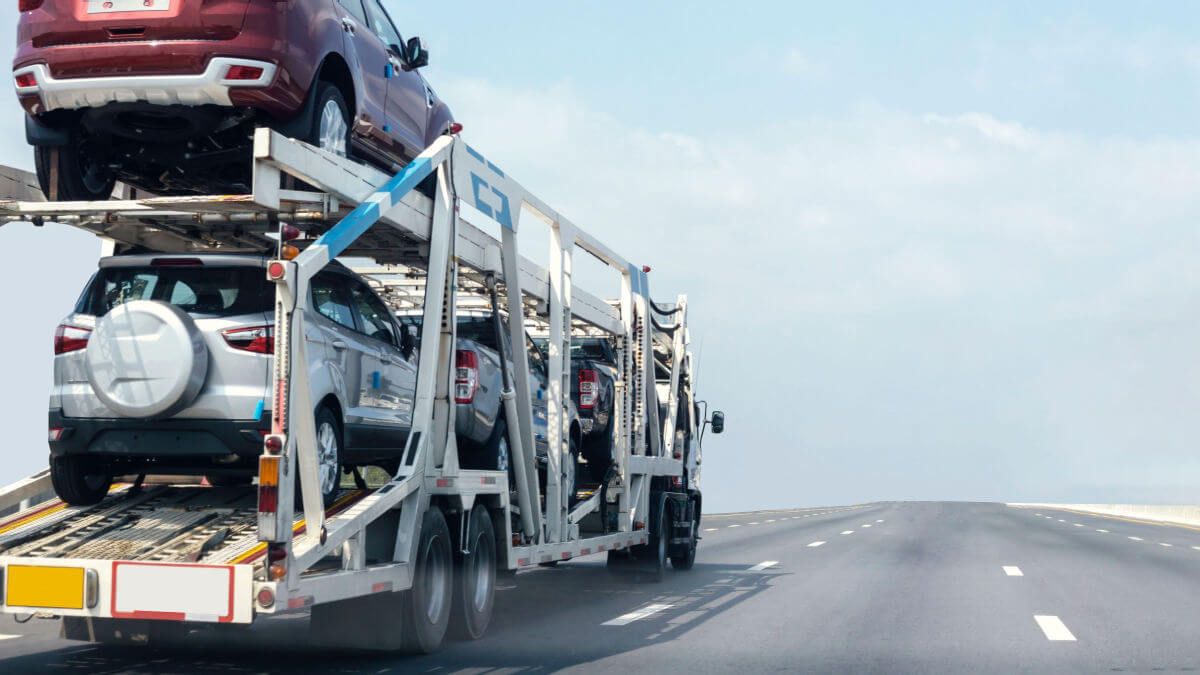Moving to South Africa from the UK: Complete guide
Everything you need to know about moving to South Africa from the UK. Read about visas, popular expat destinations, healthcare and more.

South Africa is the second largest economy on the continent, and responsible for drawing in some 24% of all of Africa’s GDP. Despite challenges, the economy is growing and stabilising, with the financial sector particularly well represented. Because of this, in addition to local enterprises, many international businesses choose to base their African operations from the larger cities, regularly drawing in foreign talent to join their local teams.
If you want to experience a different way of life, and are considering moving to South Africa to live and work, you might need a permit to do so legally. To get you started, check out this guide to getting a South African work visa.
Your first priority should be to figure out if you need a work permit at all. In some cases, depending on your nationality and the role you’re going to take on, a permit might not be necessary.
Migration into South Africa is managed by the Department of Home Affairs. Their website contains lots of useful information about the application processes for different visa types.
South Africa has reciprocal arrangements with many countries that mean that their citizens benefit from visa-free entry for stays of under 90 days. However, if you intend to work, and be paid, while you’re there, you’re likely to need a specific work visa. Some activities such as attending meetings and conferences are exempted if you qualify for visa free entry, but it’s best to check your specific circumstances with your local embassy to make sure you don’t fall foul of the law.
To apply for a South African work visa, you’ll need to visit your local South African embassy or one of their visa service centres which are in major cities around the world. In most cases, you’ll have to schedule an appointment and may need to pay your visa fee upfront when you do so. Applications must usually be made in person, although you might be able to start the process online depending on where you're applying from.
Some local embassies ask for biometric information when processing your application, including fingerprints and facial images.
There are a couple of options for foreigners to get a work visa - which fall under the ‘general’ or ‘critical skills’ routes.
To get a Critical Skills Visa, you’ll have to be planning on working in one of a number of shortage areas. The list of critical skills is published in the government Gazette periodically, or available from embassies. The range of jobs covered runs from niche positions like sheep shearing, to architects, network engineers and people working in the finance sector. With this visa type you might be able to get your paperwork sorted out without needing a firm job offer, as long as your qualifications are approved by the local authorising body in South Africa.
A General Work Visa is the alternative route for most foreigners looking to get their permit for South Africa. Under this scheme, you can apply for a visa for the contract length, or up to five years, provided you have an offer of employment already in hand.
Application arrangements vary slightly from place to place, so you should contact your local embassy to find out exactly how to apply. For example, some embassies require application forms to be handwritten and will only see you if you have made an appointment in advance.
You'll have to pay a fee to get your visa for South Africa. Charges are made at your embassy and will usually be in the local currency. To give you an idea, at the moment, a visa under the General Work route will cost 2870 ZAR. If you’re from the UK, that’s around £185 or around $230 if you’re from the United States.
Each embassy has different processing times and rules about when you can apply. In the UK, for example, you can apply no sooner than 9 weeks before you intend to travel, and processing time is usually around a month provided there are no issues with your application. Other websites cite that it takes a minimum of 8-10 weeks to process an employment visa.
The documents you need vary depending on the visa requirements, and the country you’re applying from. However, in most cases you'll need to provide the following:
A passport which is valid for at least 30 days after your intended visit
Application form and fee
Two passport photos
Proof of the purpose of your visit
Medical reports and police certificates proving your good conduct
Evidence you can support yourself financially, and either pay your way home, or that you have a commitment from your employer to do so
You may also be asked for a yellow-fever vaccination certificate if you’re travelling from an area in which the disease is prevalent.
For a General Work Visa, you must have a job lined up before you can apply, and will have to also submit your employment contract and full details of the business including their registration information, when you hand over your documents. You should also have a certificate from the Department of Labour which confirms that the employer couldn’t find a local person to do the job and that you have the correct qualifications to accept it. Your employer will help you get this before you apply.
If you’re applying under the Critical Skills route, then you'll have to show that you have the relevant foreign qualifications and have applied to the corresponding regulatory or accrediting body based in South Africa. With this visa type, you might be able to get your permits lined up on the basis of your registration with a local accrediting body and before you have actually got a solid job offer.
All documents must be in one of the languages of the republic, or else translated by a sworn translator.
If you have a job agreed in South Africa, but will be there for less than three months, you can get a business visa on a temporary basis. In this case your employer will have to provide details of the work you'll be doing, the duration and how you'll be accommodated during your stay. Even if your employer is covering all of your expenses you're likely to need to show that you have funds to cover some aspects of your trip.
If you're in South Africa with a study visa, you're allowed to work for up to 20 hours a week.
If you intend on working for yourself in South Africa, you'll have to get a Business Visa.
In this case, you need to apply to your local embassy and submit a substantial range of documents in addition to the regular visa requirements listed above. You'll need, for example, to have a certificate from a professional accountant proving that you have enough money to invest in the business. In addition, you’ll also need a recommendation from the Department of Trade and Industry to say that your business idea is feasible. Additionally, you'll have to promise that at least 60% of those employed by your new enterprise will be local people.
If you’re thinking of following this route, there are many agencies available to help both with the business set up and the process to get your visa.
If you have a valid South African work visa then you can apply for your family to join you, subject to fulfilling certain conditions. You can either apply once you have your visa in hand, or at the same time as you put in your own application. This extends to a spouse or partner, and children under the age of 18.
You'll be asked to prove you have adequate financial means to support your family members, and to provide a pack of documents to prove your relationships. If you're not married you'll have to complete sworn statements about your relationship with your partner in order to prove that you are a committed couple.
To get the most of your money, you'll want to open a bank account in South Africa, which you can do before you arrive.
Once you send money to South Africa, consider using a money conversion service like Wise to avoid unfair exchange rates. There's a small transparent fee, and when your money is converted from one currency to another you’ll get the real exchange rate - the same one you can find on Google.
If you are only staying temporarily or opening a bank account in South Africa isn't an option, you can always withdraw money from your foreign account using an ATM there. Just keep in mind it'll be more favourable to agree to be charged in the local currency, not your home currency.
Regardless of when you start your new job abroad, it should be fairly straightforward to get yourself a visa if you follow the right steps. The most important part is just to make sure to enjoy your new adventure!
*Please see terms of use and product availability for your region or visit Wise fees and pricing for the most up to date pricing and fee information.
This publication is provided for general information purposes and does not constitute legal, tax or other professional advice from Wise Payments Limited or its subsidiaries and its affiliates, and it is not intended as a substitute for obtaining advice from a financial advisor or any other professional.
We make no representations, warranties or guarantees, whether expressed or implied, that the content in the publication is accurate, complete or up to date.

Everything you need to know about moving to South Africa from the UK. Read about visas, popular expat destinations, healthcare and more.

Discover everything you need to know about inheritance tax in South Africa. Our comprehensive guide covers the rates, who pays, how to calculate, and much more.

The complete guide to buying property in South Africa as a Brit, including the latest South Africa property prices.

Your essential guide to importing a car from South Africa to the UK, covering the costs, documents and procedures to follow.

The costs in South Africa depend on the region and the city you’re moving to from the UK. Learn about average living prices when moving to South Africa.